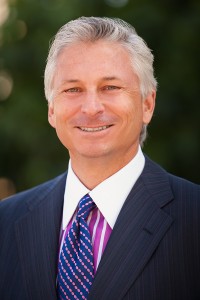There is a movement in commercial real estate where professionals, and entire companies, specialize more than ever. Why is this trend occurring?

The finest service providers in any industry are those that specialize at being excellent at one thing–the day of the generalist is dead. The full-service commercial real estate firms are doing business today virtually the same way as they have been for the last century. For the full service firms, specialization then, and now, revolves around submarkets and product types—being a Downtown office broker, or being a South Bay industrial broker. But the business has changed radically where entire companies now are best-of-class in just one line of service, or one product type. For example, Eastdil Secured is the top real estate investment firm specializing only in investment real estate. Flocke and Avoyer specializes in retail—they are the best of the best in retail. Hughes Marino is the market leader in tenant representation.
Specialization is further driven by the demand for independence in commercial real estate. Independence is the gold standard in legal, financial services and the accounting transactions, and business owners and financial executives running companies should have the same call for independence in their real estate transactions. The full service commercial real estate brokerage firms are the outsourced sales and marketing arms for property owners and landlords. A brokerage firm’s investment, leasing, appraisal, property management, and capital markets services are critical for developers and landlords to be successful. Back 20 to 30 years ago, the full service firms also represented tenants. However, other than knowing what space is available, none of the sales and marketing skills required to successfully represent landlords are transferable to representing tenants. Add the potential and actual conflicts of interest of having landlords as the full service firm’s primary customer base, how could someone at the same firm also plausibly get the tenant the best deal? You would never hire the same law firm to represent you that is also suing you, as each party deserves to have its own representation to protect their separate and distinct interests. Separating the specialization of tenant representation services to be independent from landlord representation services only makes common sense.
How has commercial real estate brokerage changed over the years, in terms of technology, services and other aspects?
The greatest thing that has happened in commercial real estate in my career is the advent of CoStar, which is the online subscription service that brings all available space, no matter who owns it, who lists it, or if it’s a sublease, to the entire broker industry. This electronic distribution system has allowed landlords and their brokers to efficiently get their space offerings out to market, and ensures that brokers representing tenants aren’t going to miss properties. All of the commercial real estate landlords and brokerage firms now have ubiquitous access to market availability information and statistics. It used to be that you hired a commercial real estate broker to find a building. While knowing the market is vital in providing service, that is now where the value starts, versus where the value finishes.
Specialized services have evolved over time that uniquely serve the tenant. We have a five person construction management team to help the tenant build a building, or remodel one that they are leasing. We have a three person Enterprise Zone tax credit team that serves tenants in doing their state of California filings, which also allows us to uniquely quantify the tax benefits of being in one location versus another. We have a lease operating expense audit expert to help tenants recover money that has been overcharged by a landlord. There was brokerage, then there was tenant representation, and now there are professional services—we have led these transitions.
Describe a challenging problem one of your clients faced recently, and how you were able to solve it for them?
One reoccurring situation is that our clients have increased their hiring rates beyond years before, and are outgrowing their space with two or three years of lease term remaining. We have been very successful in helping tenants to relocate to a larger facility, or expand in place, two to three years in advance of their expiration date. We are literally moving large tenants from one building to another, without having the costs of the old facility lease carrying forward into the new lease. Part of our success is driven by our excellent working relationship with large landlords like Kilroy Realty and The Irvine Company, the two largest owners of commercial real estate in San Diego County, which have been the most accommodating and creative in doing new leases like this for our clients.
What steps should San Diego businesses take right now to maximize the value of their commercial space?
The market is entering its third year of recovery. The best thing tenants can do today is lock in long-term pricing before the market becomes much more expensive. You don’t want to be in a position of signing a short-term lease to wait and see what happens with the market, as a recovery is in the making and rents are going to be much more expensive in two to three years, with fewer concessions offered to the tenants in the future.
David Marino is senior executive managing partner of Hughes Marino, a global corporate real estate advisory firm that specializes in representing tenants and buyers. Contact David at 1-844-662-6635 or david@hughesmarino.com to learn more.









